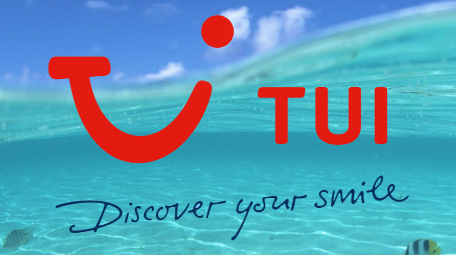The Pros and Cons of Dynamic Packaging and ATOL for Travel Agents
April 19, 2023
T ravel agents should weigh the pros and cons of dynamic packaging and obtaining an ATOL in the context of their specific business objectives and capabilities.

In the competitive world of the travel industry, travel agents are continually looking for ways to differentiate themselves from their competitors and offer unique value to their clients. One method to achieve this is by providing dynamic packaging and obtaining an Air Travel Organiser's Licence (ATOL). This blog post discusses the pros and cons of implementing these strategies for travel agents and helps you make an informed decision on whether they are suitable for your business.
The concept of dynamic packaging Dynamic packaging is the process of creating tailor-made holiday packages by combining various travel components, such as flights, accommodation, and activities, to suit each customer's unique preferences and requirements. This approach offers several benefits, including increased flexibility, better value for money, and personalized experiences for travelers. However, it also comes with its own set of challenges and risks.
Pros of dynamic packaging
Customization and flexibility One of the primary advantages of dynamic packaging is the ability to offer customized and flexible travel experiences. Travel agents can create bespoke packages by combining different travel components to cater to each client's unique preferences and requirements. This level of personalization can lead to higher customer satisfaction, repeat bookings, and positive word-of-mouth.
In creased revenue potential Dynamic packaging allows travel agents to offer a wide range of travel products and services, increasing the potential for additional revenue streams. By bundling various components together, agents can often provide better value for money, making it easier to upsell additional services and secure higher profit margins.
Competitive edge Offering dynamic packaging can set your travel agency apart from competitors that provide traditional off-the-shelf holiday packages. By tailoring packages to meet specific client needs, you can attract a diverse range of customers and position your business as a leader in the market.
Cons of dynamic packaging
Increased complexity With dynamic packaging comes increased complexity in terms of managing multiple suppliers, inventory, and pricing. Travel agents must ensure they have the necessary systems and processes in place to handle this added layer of complexity.
Legal responsibilities Travel agents offering dynamic packages are required to comply with specific regulations, such as the Package Travel Regulations, which protect consumer rights. This may involve additional administrative work, such as providing accurate information on travel arrangements, ensuring financial protection, and handling customer complaints.
The role of ATOL ATOL is a financial protection scheme for UK-based travel companies that sell air-inclusive holiday packages. It ensures that customers who book such packages are protected in the event of a travel company's insolvency. Obtaining an ATOL comes with its own set of benefits and drawbacks.
Pros of having an ATOL
Consumer trust and confidence Having an ATOL demonstrates your commitment to consumer protection and can enhance your travel agency's reputation. Customers who book air-inclusive packages with an ATOL-protected travel agent can have peace of mind knowing that they are financially protected in case of company failure.
Compliance with regulations Obtaining an ATOL ensures that your travel agency is compliant with the Package Travel Regulations, which require businesses selling air-inclusive packages to provide financial protection to their customers.
Cons of having an ATOL
Costs and administration Applying for and maintaining an ATOL can be time-consuming and costly, as it involves annual fees, bonding arrangements, and ongoing administrative tasks, such as submitting financial reports and customer booking data. This added expense and workload may not be feasible for smaller travel agencies.
Limitations for non-UK businesses ATOL is specifically designed for UK-based travel companies, making it less relevant for travel agents operating outside of the UK. These businesses may need to explore alternative financial protection schemes that are more applicable to their local market.
The decision to offer dynamic packages and obtain an ATOL largely depends on the specific needs and goals of your travel agency. While there are numerous benefits to providing customized travel experiences and having financial protection in place, it's essential to consider the associated costs and administrative workload.
Before making a decision, carefully evaluate your business's capacity to manage the complexities of dynamic packaging and the ATOL application process. Additionally, consider your target audience and the potential demand for tailor-made holiday packages within your market.
If your travel agency can efficiently handle the increased complexity and is well-positioned to cater to clients seeking personalized travel experiences, dynamic packaging can be a valuable strategy to differentiate your business from competitors and attract a loyal customer base. Similarly, obtaining an ATOL can enhance consumer trust and confidence in your travel agency, which can contribute to your business's long-term success.
However, if your business operates outside of the UK or is a smaller agency with limited resources, it may be more practical to explore alternative strategies and financial protection schemes that better align with your business's needs and capabilities.
In conclusion, travel agents should weigh the pros and cons of dynamic packaging and obtaining an ATOL in the context of their specific business objectives and capabilities. By carefully considering these factors, travel agents can make informed decisions on the best approach to g row their business and provide exceptional value to their customers.
The concept of dynamic packaging Dynamic packaging is the process of creating tailor-made holiday packages by combining various travel components, such as flights, accommodation, and activities, to suit each customer's unique preferences and requirements. This approach offers several benefits, including increased flexibility, better value for money, and personalized experiences for travelers. However, it also comes with its own set of challenges and risks.
Pros of dynamic packaging
Customization and flexibility One of the primary advantages of dynamic packaging is the ability to offer customized and flexible travel experiences. Travel agents can create bespoke packages by combining different travel components to cater to each client's unique preferences and requirements. This level of personalization can lead to higher customer satisfaction, repeat bookings, and positive word-of-mouth.
In creased revenue potential Dynamic packaging allows travel agents to offer a wide range of travel products and services, increasing the potential for additional revenue streams. By bundling various components together, agents can often provide better value for money, making it easier to upsell additional services and secure higher profit margins.
Competitive edge Offering dynamic packaging can set your travel agency apart from competitors that provide traditional off-the-shelf holiday packages. By tailoring packages to meet specific client needs, you can attract a diverse range of customers and position your business as a leader in the market.
Cons of dynamic packaging
Increased complexity With dynamic packaging comes increased complexity in terms of managing multiple suppliers, inventory, and pricing. Travel agents must ensure they have the necessary systems and processes in place to handle this added layer of complexity.
Legal responsibilities Travel agents offering dynamic packages are required to comply with specific regulations, such as the Package Travel Regulations, which protect consumer rights. This may involve additional administrative work, such as providing accurate information on travel arrangements, ensuring financial protection, and handling customer complaints.
The role of ATOL ATOL is a financial protection scheme for UK-based travel companies that sell air-inclusive holiday packages. It ensures that customers who book such packages are protected in the event of a travel company's insolvency. Obtaining an ATOL comes with its own set of benefits and drawbacks.
Pros of having an ATOL
Consumer trust and confidence Having an ATOL demonstrates your commitment to consumer protection and can enhance your travel agency's reputation. Customers who book air-inclusive packages with an ATOL-protected travel agent can have peace of mind knowing that they are financially protected in case of company failure.
Compliance with regulations Obtaining an ATOL ensures that your travel agency is compliant with the Package Travel Regulations, which require businesses selling air-inclusive packages to provide financial protection to their customers.
Cons of having an ATOL
Costs and administration Applying for and maintaining an ATOL can be time-consuming and costly, as it involves annual fees, bonding arrangements, and ongoing administrative tasks, such as submitting financial reports and customer booking data. This added expense and workload may not be feasible for smaller travel agencies.
Limitations for non-UK businesses ATOL is specifically designed for UK-based travel companies, making it less relevant for travel agents operating outside of the UK. These businesses may need to explore alternative financial protection schemes that are more applicable to their local market.
The decision to offer dynamic packages and obtain an ATOL largely depends on the specific needs and goals of your travel agency. While there are numerous benefits to providing customized travel experiences and having financial protection in place, it's essential to consider the associated costs and administrative workload.
Before making a decision, carefully evaluate your business's capacity to manage the complexities of dynamic packaging and the ATOL application process. Additionally, consider your target audience and the potential demand for tailor-made holiday packages within your market.
If your travel agency can efficiently handle the increased complexity and is well-positioned to cater to clients seeking personalized travel experiences, dynamic packaging can be a valuable strategy to differentiate your business from competitors and attract a loyal customer base. Similarly, obtaining an ATOL can enhance consumer trust and confidence in your travel agency, which can contribute to your business's long-term success.
However, if your business operates outside of the UK or is a smaller agency with limited resources, it may be more practical to explore alternative strategies and financial protection schemes that better align with your business's needs and capabilities.
In conclusion, travel agents should weigh the pros and cons of dynamic packaging and obtaining an ATOL in the context of their specific business objectives and capabilities. By carefully considering these factors, travel agents can make informed decisions on the best approach to g row their business and provide exceptional value to their customers.

February 21, 2025
There's a wealth of information at your fingertips that can enhance your travel experiences through data-driven marketing strategies. In the modern age, your preferences and behaviours serve as valuable insights for travel brands aiming to cater to your specific desires. By understanding how data shapes travel marketing, you can better navigate choices that resonate with your interests, ultimately leading to more enriching journeys. In this post, we'll explore how data influences the travel industry and how you can harness this knowledge for your next adventure.

February 20, 2025
Marketing your destination effectively can lead to unforgettable travel experiences for your visitors. By understanding your audience and tailoring your offerings, you can create unique journeys that resonate with their desires. This post will provide you with actionable tips to enhance your marketing strategies, ensuring that your destination stands out in a competitive landscape. Elevate your approach and draw travellers in by focusing on personal connections and enriched storytelling.

February 14, 2025
There’s no denying that digital innovations are transforming the way you travel, making your experiences more immersive and personalised than ever before. From virtual reality previews of destinations to AI-driven travel planning tools, technology is fostering your wanderlust and enhancing the journey itself. As you navigate the future of travel, discover how these advancements not only streamline logistics but also enrich your connections to the places and cultures you explore.

February 13, 2025
Choices abound in the ever-evolving landscape of holiday planning, and as 2025 approaches, families like yours will encounter a myriad of options. From traditional festivities to unique experiences, the way you select your holidays will be shaped by emerging trends, economic considerations, and new technologies. Understanding these developments will empower you to make informed decisions that enhance your family's enjoyment and connection during the festive season. Join us as we explore the exciting array of holiday choices that await you in 2025.

February 3, 2025
Over time, you can leverage LinkedIn groups as powerful platforms to enhance your online travel business. Engaging in these communities allows you to connect with potential customers, share valuable insights, and build your brand's credibility. By strategically participating in discussions and sharing your expertise, you can drive traffic and interest towards your offerings. This post will explore the 10 effective ways you can harness the potential of LinkedIn groups to truly elevate your travel venture.

January 30, 2025
Static travel websites can often become a missed opportunity for engagement and revenue. You can transform your site into an interactive platform by incorporating real-time availability and booking capabilities. By using tools like Travelgenix's widgets / apps, you empower visitors to easily research and book accommodations, flights, and experiences relevant to their travel plans. This not only enhances user experience but also maximises your monetisation potential, turning your website into a dynamic revenue-generating hub.

January 28, 2025
Marketing your travel website effectively requires a solid SEO strategy that can enhance your visibility and attract potential travellers. You must focus on keyword optimisation , ensuring you target the right terms that your audience is searching for. Additionally, incorporating high-quality content that resonates with your readers can establish your authority and encourage engagement. Don't underestimate the importance of mobile optimisation as many users search for travel options on their phones. By understanding these strategies, you can boost your site’s ranking and drive more traffic, ultimately leading to increased bookings and customer loyalty.

January 27, 2025
Understanding Email Marketing A effective email marketing strategy allows you to reach your audience directly in their inbox, providing targeted content that aligns with your travel offerings. It's a form of digital communication that involves sending tailored messages to a subscriber list, with the goal of promoting your travel website and engaging potential customers.

January 26, 2025
It's important for you to understand that local SEO can significantly enhance your travel website's visibility in a highly competitive market. By implementing effective localisation strategies, you can attract more visitors who are actively searching for travel options in your area. This provides a unique opportunity to improve your online presence and connect with potential customers who are less than a few clicks away. Prioritising local SEO not only boosts your rankings on search engines but also fosters trust and relevance among travellers looking for their next adventure.



